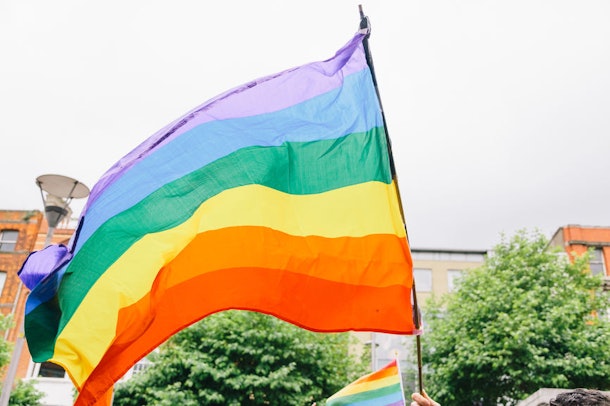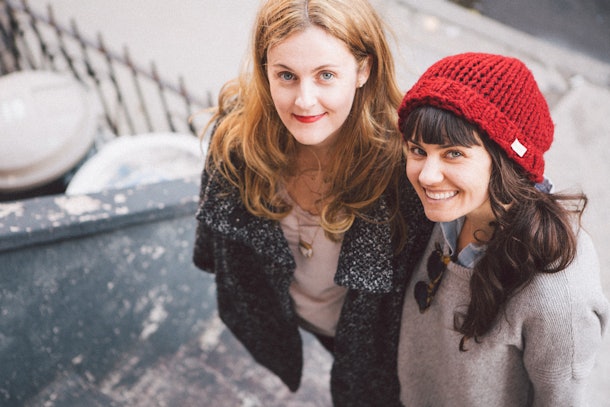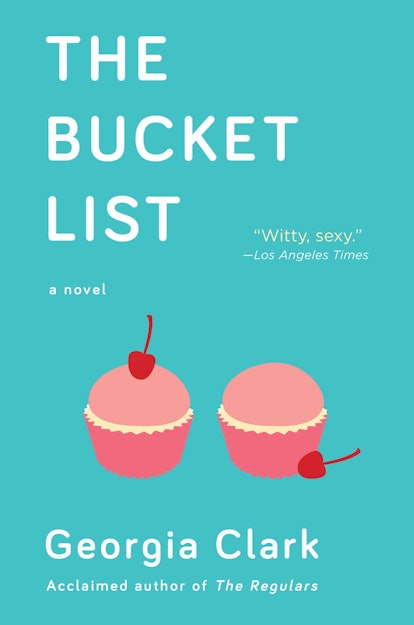Leading Through Listening: Five Key Questions To Continually Ask Your Team
When I'm not consumed with my full-time job of running a technology startup, I enjoy producing a barrel of my own wine every year. For me, wine-making is a great reminder about what it takes to be an effective leader because it moves at its own speed, and it requires a lot of patience and faith. If you have enough persistence to keep at it, and continually make small adjustments as you go, you'll eventually find yourself with a nice bottle of wine. But if you try to force it too quickly or don't heed some of the signals along the way, you'll end up with something no one will enjoy.
There are many parallels between making wine and running a technology startup, including starting out with a vision, working to get it just right, making many pivots and adjustments along the way. But perhaps the most important similarity is that both pursuits require the ability to ask the right questions.
Leading a high-performing, resilient organization in today's competitive business environment requires a mix of confidence and humility. In a climate marked by constant change and disruption, no single person can pretend to have all the answers. So, in order to be a good leader, you need to acknowledge that you don't know everything and recognize that you need to constantly draw upon the wisdom and expertise of others to navigate challenges as they arise.
I've learned most of what I know about wine-making by asking questions of people who know more about it than I do. Most of the time, I wasn't sure of the right questions to ask until I was right in the midst of the process. But when I was going through my first fermentation, I asked a lot of questions about fermentation. When I was going through the steps of clarification, aging and bottling, I asked plenty of questions about those processes, too. The answers I received to those questions informed and improved the results of each step I took.
As a founder and CEO, I've found that the same dynamic holds true. I do a lot of my own research, but some of the most valuable insights come from peers, colleagues and thought leaders. This is why asking the right questions is critical.
In today's competitive business environment, successful leadership is based on the ability to ask the right questions at the right time about the specifics that pertain to the business. Although the questions might vary from industry to industry, there are a few key topics that pertain to any organization. You should continually discuss these topics with and ask these questions to your entire team (and yourself) on a regular basis:
1. Vision: Are we clear about where we are going? Do we understand how we will get there? What's something that inspires you personally about our vision?
2. Execution: Is your team working efficiently as it progresses toward achieving its goals? Do you see how your daily work connects to our vision? What's one thing your team could do that would increase your confidence in our ability to achieve our goals?
3. Employee experience: Are we creating a great experience for our talent? Are we creating an environment that will attract top talent and make people want to stay? Can you name one thing that would improve your experience here as an employee?
4. Culture and values: Are we working well together? Do people treat one another with respect? Do you feel your work has meaning?
5. Change: Do you understand the change that is occurring? Do you feel we are agile enough to thrive through this change? Can you name one thing you need to be successful with this change?
These are the universal topics that matter to employees and employers across all industries and organizations. In order to sustain long-term success, leaders need to ask questions to their entire organization and tap in more frequently to the voice of employees around these topics. Learning how to ask the right questions is the key step to tapping into the collective wisdom that leaders need to propel their organizations forward.
7 things you should know before getting into real estate
Breaking into real estate is about more than getting a license. Here are seven tips to help you thrive as a new agent.
The barrier to entry in real estate is relatively low. It’s not especially difficult to apply for a real estate license, but not everyone can maintain one either.
For me, passing the school and state exams was a very cool experience. I was excited about the opportunities in the real estate world that this license would open up to me.
The managers at the firms I interviewed with were so unlike the interviewers of any steady paycheck job! Typical employment opportunities require layers of meetings and personality tests and detailed discussions about career goals.
Independent contractor interviews were more about how great the firm is, how I should park my license with them immediately, and how well I was going to succeed. I was practically convinced to join each company I interviewed with.
Once I chose a firm, the door was opened and the moment I stepped my feet inside, it was as if my feet never touched the ground. I was falling in the air and the only choices I had were to either keep building my real estate wings and learn how to fly high or quit before I hit the pavement — splat!
After four years in the business, here is what I think you would like to know if you really want to build a brand in this real estate world and stand out:
It’s the same rules everywhere!
It’s that simple! The business has its own fundamentals. Whatever firm you join, whatever that firm takes pride in differentiating itself, the basic rules are still the ones that work. Shiny toys don’t generate business. You do. YOU sell real estate.
The industry is all about the old school principles
This product cannot be added to an online shopping cart. Regardless of all the technology available today, you will still have to focus on meeting with people, prospecting, shaking hands, networking, advertising, encouraging word of mouth, getting recommendations and referrals, creating brand marketing and showing apartments.
Real estate is not a side hustle
If you got your license just to make an extra buck on the side in addition to your full time job, then fuggedaboutit!
Real estate really needs your full attention, effort, care, creativity, energy and constant hustle. You gotta have your hands in it. People will work with you when they know that you are in real estate not just because you’ve got a license, but because you truly want a career.
Don’t expect quick money because it’s not about quick money
It’s all about relationships. It takes time to build a relationship, as well as credibility and trust. Clients need to have confidence in the agent they’re relying on to sell (or rent) their home, and it’s important to recognize that customers have often experienced many emotions as a result of years of celebration, living their own lifestyle and engraving their personal memories.
Your contacts need to be prepared to buy or sell and your responsibility is to help them navigate. Usually individuals don’t act on such big, serious moves overnight. They realistically might not even be ready to sell or buy now (exploring options), but a year later they will.
Get used to the feeling when the castle of cards you just built crumbles
You will build up your little castle of cards, and a funny thing will make it crumble! You may work on a deal that took you many weeks, or even months, to get everything done, every step accomplished and makes you feel as though you are heading towards the closing table, and all of a sudden the deal falls through!
Very frustrating, I know how it feels. But before you move forward, take a pause, do what you do best in these situations and then come back to it with persistence. Real estate transactions almost always ebb and flow. Be resilient, and most importantly, be a deal-maker. Try to find solutions. Building stamina is very important in this business.
Do it again and again and again
You are competing with thousands and thousands of agents for the same product. Whatever it is you focus on, be repetitive in a productive way. There’s no substitute for relentlessly pursuing your goals.
Personal marketing isn’t a one-time event, it’s all about consistency. Continue again and again and again so people know that you are there, and not fading away. It’s how you let potential sellers and/or buyers know that you are in the game and that you will be there for them once they are ready.
Pursue ‘the fine tune’
You need to find your niche! Identify your interests, your creative passions or your fire that will always make your strive for success and push forward.
The niche is the essential element of your own brand. That may be co-ops, or condos, or townhouses or lofts. It could be rentals or sales or investment properties or development. But concentrate on something that truly captivates you.
Or perhaps being an agent may not be your thing at all, but you could be great as a property manager, or an appraiser or a mortgage broker.
It’s OK if you take time trying to figure out your niche. Know your strengths, and put them to work for you!
Peter Zakian is a licensed real estate salesperson with Century 21 Metropolitan in New York City. Connect with him on Instagram and LinkedIn.
After Years Of Falling For Gay Men, Here's What I Learned About Myself
If you know me, you know I am persistent. I’m persistently social: If I’m throwing a party, you better believe I’ll be sending you an email, a text, and a Facebook and Paperless Post invite. I’m persistently creative: I make a living as an author, a feat born of dogged persistence in the face of constant career instability and unsold manuscripts. But the story I’m sharing tonight isn't about the persistences that have paid off for me. No, I’m sharing a persistence that lead to heartache and humiliation. My persistence in falling in love with gay men.
And I don’t mean having a crush on Neil Patrick Harris or dreaming about removing Anderson Cooper’s black-framed glasses to share a thin-lipped kiss. No, I mean spending a good chunk of my teens and 20s crushing on guys who would never (and could never) return my feelings.
There was Matt, my first crush at age 8, best friend of the boy next door. With his huge brown eyes and mop of chocolate-colored hair, Matt looked like a cross between Bastian from The Never-Ending Story and a Labrador puppy. I was so furiously in love with Matt that I swore to myself, with every ounce of resolve in my tiny girl-child body, that when I learned to drive, my first license plate would read "MATT." Luckily, I never learned to drive, as Matt’s current profile pic on Facebook features him wrapped in a rainbow flag.

Later, in my early 20s, I couldn’t resist the plump lips and bedroom eyes of my Greek gay bestie, Peter. One night we got very drunk and made out in an elevator, which somehow led to me slapping him across the face and starting a band together.
My mid-20s saw me falling for Alan, lead singer of a local indie band in Sydney. Ah, Alan, you really bore the brunt of my obsessive affection for years. Sorry I chose to tell you I was in love with you after you confessed to me that your parents were getting a divorce, something that was clearly really upsetting you. It wasn't the right time and I guess the price I pay is never forgetting that look on your face when I made my carnal confession: a mix of fascination, fear, and uncut horror.
But the most humiliating source of Cupid’s misguided arrow was Jay. Jay. Jay, Jay, Jay: Maybe if I say your name enough times I can rob it of meaning, render it dull and misshapen in my mouth like a sweet I’ve been sucking too long. Unfortunately not. Because even though many years have passed since our sexually stupid Shakespearian folly, I still feel the slow burn of humiliation when I remember what happened.
I met Jay when I was 22, fresh from my first-ever breakup. I’d been with my then-girlfriend for almost three years, which in college years, was the equivalent of three decades. I wanted to see “what else was out there," which meant I wanted to “sleep with my friend Bronwyn." I did, and it was bad, and I realized I’d made a huge mistake. Jay was there to pick up the pieces. A 6 foot Eurasian activist/fashion student from Melbourne, I met Jay when he was in town for a queer conference, which meant Melbourne University paid him to come up and get drunk with other activists from Sydney. He was devastatingly handsome, like an Australian half-Asian Keanu Reeves. He was kind, funny, flirtatious and very good dresser. I was head over heels. On our first night hanging out together, a bunch of us all got drunk on boxed wine. Ridiculously drunk, we made out in the backseat of a bus. My blood was singing, my skin awash with heat. I couldn’t wipe the smile off my face for days.

I fell so hard for Jay. I knew he was gay, but so was I, and I liked him, so I guess the whole gay thing was pretty flexible, right? I knew his sexuality wouldn't simply bend to my will, but I wondered if he was more fluid than he let on. After a week of intense infatuation, which felt entirely reciprocated to me, Jay retuned to Melbourne. I pined. I wrote bad poetry on a legal pad I kept by the milk crates that held up my mattress. All of the sadness I felt from my breakup, all of the longing I had for sex and love and a relationship, I poured into someone who was completely unavailable to me.
Now, had it ended there, I would have walked away unscathed. But I couldn’t let it go. I daydreamed about his sexy smile, I bored my friends stupid with endless interpretations of every moment that’d passed between us. Among my friends, sexuality was playful and permissive — very much an anything goes mentality — but my friends started to get a little weirded out. “He’s gay,” they’d say in a you-know-that-right? tone of voice. I’d picture our kiss in the back of the bus and reply, “Mm-hm. Yeah. I guess…” They told me to forget about it.
I booked a trip to Melbourne to see him.

Leading up to the one-week vacation to see him, I was frothing with excitement. I pictured strolling hand-in-hand through Melbourne’s charming little alleyways, riding the tram to St Kilda, getting Italian on Lygone Street. Of course, I’d be staying with him. Sharing his bed. Looking back on it, I’m not sure why Jay allowed this to happen. My best guess is that maybe didn’t know how to say no to me without coming across as mean. I steamrolled him. I was persistent.
Things went south pretty much straight away. To start, he wasn’t there when I arrived. He’d left a key so I made myself at home in his apartment, which was sleek and modern and completely unlike the knockabout terrace houses I was used to in Sydney. I waited up for him, but eventually it got so late I went to bed. His sheets were bright white and felt expensive. Immediately, I smudged my pillowcase with the black eyeliner I’d taken to covering my eye area with. Hours later, I heard the front door ease open. Like a thief, he crept into the room, slipping gingerly in beside me. We both lay there, him pretending to be asleep, me pretending like it hadn't started to dawn on me how fundamentally ridiculous this all was.
Jay was up early, all terrified smiles as he tripped over himself to get out the front door. He had a “really busy week,” he told me. “I might not be home much.”
“Don’t worry,” I told him, with a brave smile. “I get it.” His gaze dropped to the eyeliner stain on his perfect white pillowcase. A muscle in his jaw tensed.
I spent that week wandering through Melbourne’s charming little alleyways, riding the tram to St Kilda, and getting Italian on Lygone Street, but I did it alone. It didn’t occur to me to come back to Sydney early or work out somewhere else to stay so the whole thing dragged on a like a bad reality show that everyone else had stopped watching. At the end of the week, we hugged goodbye. “Sorry I was so busy,” he said. “Next time…” The words hung in the air as if they were written in black eyeliner. We both knew there wouldn’t be a next time. We never spoke again.

Why gay men? Well, I have a few theories. They’re not emotionally or sexually available to me. They’re a fantasy. They’re not straight men, which considering I now live with a female partner, makes a lot of sense. As a queer person with a strong — perhaps too strong — imagination, negotiating desire was complicated. I could talk myself into pretty much anything, including the likelihood of a man who was attracted to other men falling for me. Now, I realize that I was dismissing my crushes' sexuality. Ultimately, I just didn’t really know a lot of about relationships and what it was supposed to be like when a guy liked you. Because I didn’t want straight men to like me. I wanted to be with women, even if that wouldn’t become crystal clear to me for another 10 years or so.
Who knows. All in all, I’m glad my persistence in falling for gay men has come to a close. I hate breaking promises to myself, but I think it’s fair to say that if I ever do learn to drive, I’ll resist the urge to get a license plate reading "MATT."
Georgia Clark is the author of The Bucket List.

Check out the entire Gen Why series and other videos on Facebook and the Bustle app across Apple TV, Roku, and Amazon Fire TV.
Check out the “Best of Elite Daily” stream in the Bustle App for more stories just like this!
No comments:
Post a Comment